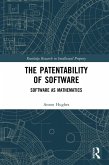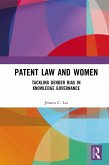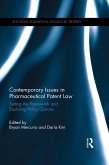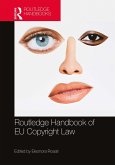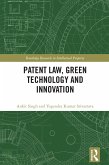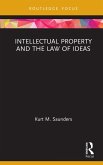Anton Hughes demonstrates that the current approach has failed and that a fresh approach to the software patent problem is needed. The book goes on to argue against the patentability of software based on its close relationship to mathematics. Drawing on historical and philosophical accounts of mathematics in pursuit of a better understanding of its nature and focusing the debate on the conditions necessary for mathematical advancement, the author puts forward an analytical framework centred around the concept of the useful arts. This analysis both explains mathematics', and therefore software's, nonpatentability and offers a theory of patentable subject matter consistent with Australian, American, and European patent law.
Dieser Download kann aus rechtlichen Gründen nur mit Rechnungsadresse in A, B, BG, CY, CZ, D, DK, EW, E, FIN, F, GR, HR, H, IRL, I, LT, L, LR, M, NL, PL, P, R, S, SLO, SK ausgeliefert werden.



